Snapshots of Our Special Education Teachers (Part 2)
30 Aug 2019
In the lead-up to Teachers’ Day, we shine the spotlight on teachers who work with children with special needs. This is the second article in a two-part series.
Rising to the challenge
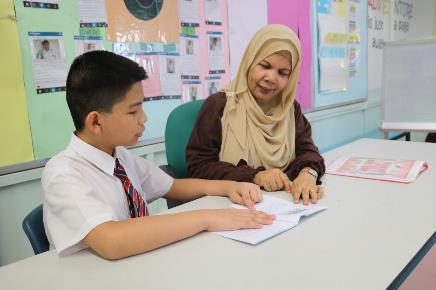
Mrs Fazillah Yousoff has been instrumental in building Aeda’s self- confidence.
When Mrs Fazillah Yousoff, a special education educator for 36 years, met 9-year-old Aedan Wan, he faced significant challenges in adjusting to school routines and the environment.
Aedan, a student at APSN Chaoyang School , has Autism Spectrum Disorder. In the beginning, he lacked self-confidence, and constantly needed reassurance and affirmation from his teachers and peers. However, in the three years that Mrs Yousoff has taken Aedan under her wing, she has patiently worked with him to identify his strengths and interests and built on these to nurture his academic competence.
In order to accommodate Aedan’s needs stemming from Autism Spectrum Disorder, she incorporated daily routines such as a ‘Check-In’ session at the start of each day. This is a time for students to share how they are feeling, in order to prepare them for the lessons ahead. She would also go through a visual and written schedule with the class, and actively remind the students of the lesson goals, routines and expectations for the day.
Aedan was appointed a Service Leader last year, and a School Prefect this year. The once unsure 12-year-old now confidently leads the school in the recitation of the Pledge during the daily morning assembly. He also participated in the School’s Talent Development Programme thanks to his flair for Chinese painting, which was noticed by the school. With all the progress that Aedan has made, friends and peers now look up to him as a role model.
These are heartwarming moments for Mrs Yousoff. But there are also challenging moments that have seen her quietly persevering to make a difference in her students’ lives. To her, the biggest challenge is managing students with deep and complex emotional issues. Parental support is key, so Mrs Yousoff always reaches out to parents in her endeavour to help the child blossom.
Mrs Tan Hsing Hui, Aedan’s mother, is grateful for the support that Mrs Yousoff has given her son in his foundational schooling years. She said, “Mrs Yousoff has played an important role in Aedan’s development in APSN over the past three years. She looks past his ASD condition and encourages him to step out of his comfort zone to try new things, and my son has grown and blossomed so much under her care and guidance”.
Engaging hearts and minds
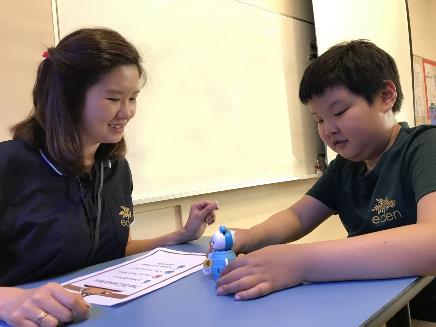
Ms Ena plays a game with Tadeo, which teaches him pronouns and social skills, such as taking turns.
“Education is not the filling of a pail, but the lighting of a fire.” – William Butler Yeats
Ms Ena Tay, a special education teacher at Eden School, holds this belief strong in her heart. She aspires to help her students cultivate a sense of curiosity and passion towards learning.
With seven years of experience working with children diagnosed with moderate to severe autism aged 7-12 years, Ms Tay has had memorable as well as challenging experiences.
When Ms Tay met Tadeo, a 9-year-old boy with moderate autism, she experienced difficulty keeping him interested in class activities. He could not stay seated in a work area for long, and would run off, hit out and cry.
Ms Tay did not allow these challenges to deter her. Instead, she saw it as an opportunity to collaborate with Tadeo’s mother. Learning that Tadeo liked ‘Thomas the Tank Engine’ and enjoyed playing competitive games, Ms Tay used games and computer quizzes to engage him and at the same time, teach him literacy and numeracy concepts. Each time Tadeo completed an activity successfully, he would get a reward point on a ‘Thomas the Train’ reward chart. When he completed the chart, he would get some iPad time, which he enjoyed.
Ms Tay provided daily, and subsequently weekly, face-to-face updates to Tadeo’s mum, and together, they extended the class activities to home. Tadeo would play board games with his two siblings, during which the family would reinforce autism-coping strategies that are also used by the school. For example, visuals to get ready, work systems (how much work to do), and visual instructions on how to play a game.
Over time, Tadeo was able to remain seated during lessons. He looked forward to school, and enjoyed group time with his friends. He was also starting to speak about his day in school, to the delight of his mother.
“My greatest joy is to see Tadeo rushing to take his schoolbag whenever it’s time for school – he’s so excited! I’m blessed to see this happen every day, thanks to the hard work and dedication of the school and his teachers,” shared Tadeo’s mother, who is glad to see her son happy and well-adjusted in school.
Celebrating Every Step
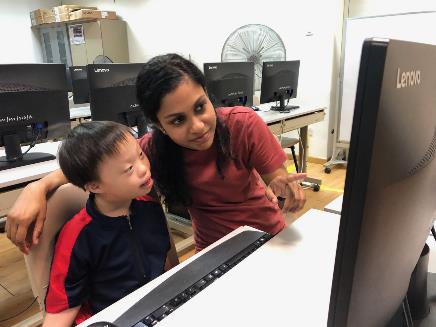
Ms Eswari is showing Kaylin an online educational game on the monitor.
When 7-year-old Kaylin first came to MINDS – Lee Kong Chian Gardens School in 2017, she struggled to communicate. Diagnosed with Down Syndrome, she would try to show her teachers what she wanted by pulling at them or using gestures. When they did not understand, she would hit her head with her fists in frustration.
Thanks to Kaylin’s teacher, Ms Eswari Krishnadas, she has learnt to articulate single words more clearly, and indicate her toileting needs using the Key Word Signs approach. This approach involves speaking and using signs for key words in the speech at the same time. This enables children with speech difficulties to express their wants, needs and feelings more effectively.
Ms Eswari also taught the Key Word Sign approach to the whole class so they could interact with Kaylin. It was important to continually use them in everyday situations both in school and at home – something that she reinforced.
Ms Eswari, who has been at MINDS for seven years, looks to her students for inspiration. She talks to her students to understand their thoughts and concerns, and turns those into topics for future lessons. In this way, she understands her students and also helps them make connections with the world.
She also observed that Kaylin would refuse to walk for more than 10 minutes. She did not have a proper walking gait and walked at a slower pace than her peers. Together with her co-teacher, Ms Eswari worked on Kaylin’s stamina by using strategies shared by the school’s physiotherapist during physical education lessons.
After several months of practice, Kaylin’s stamina and balance improved. She can now go on long walks, climb stairs and handle “travelling” lessons. During these lessons, students learn to use the escalators, and understand common public signs that show, for example, whether the escalator is moving up or down.
“Occasionally, I will allow Kaylin to use a stroller to support herself when she walks,” says Kaylin’s mother. “But Ms Eswari assured me of Kaylin’s potential and abilities. She encouraged me to let Kaylin walk independently. Kaylin’s motor skills have improved bit by bit. Ms Eswari’s care and concern for the students are genuine and they come from the heart.”

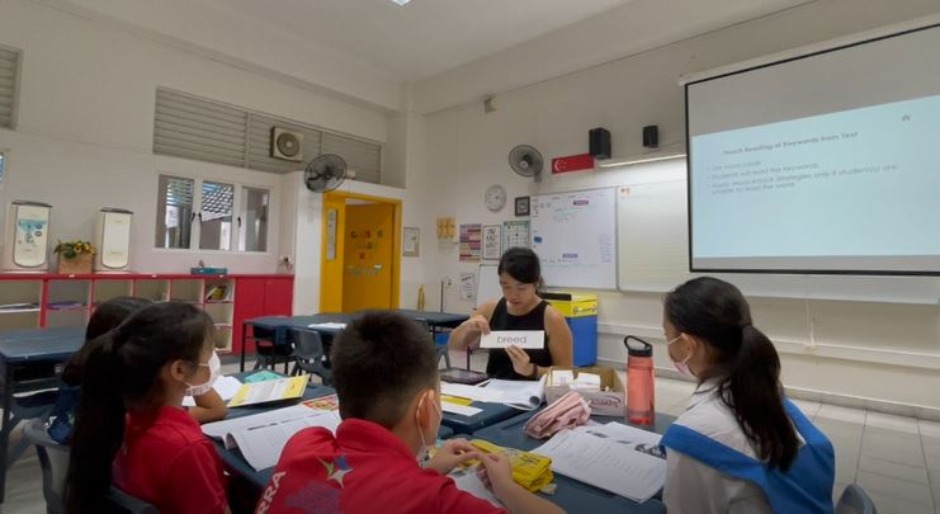
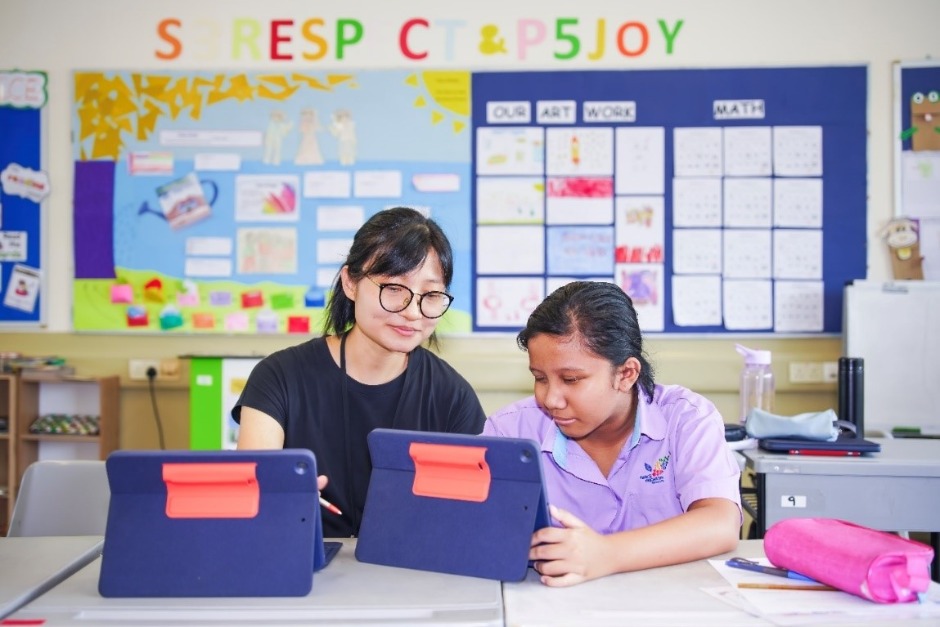
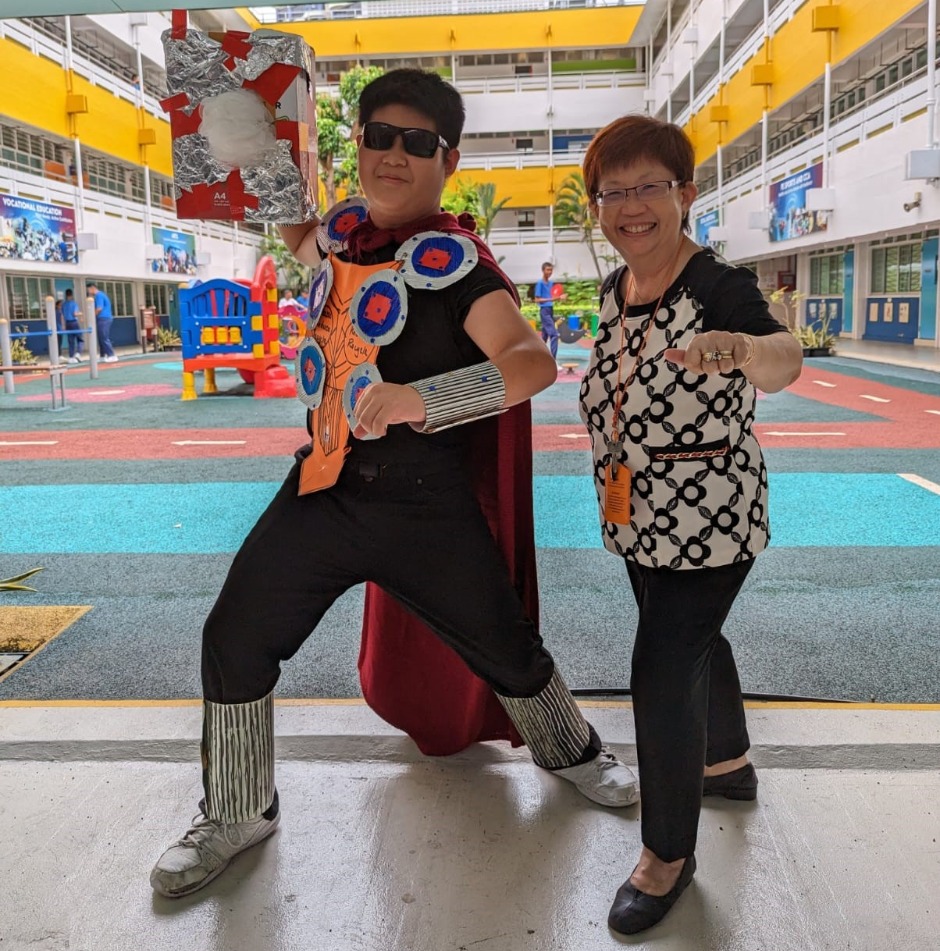
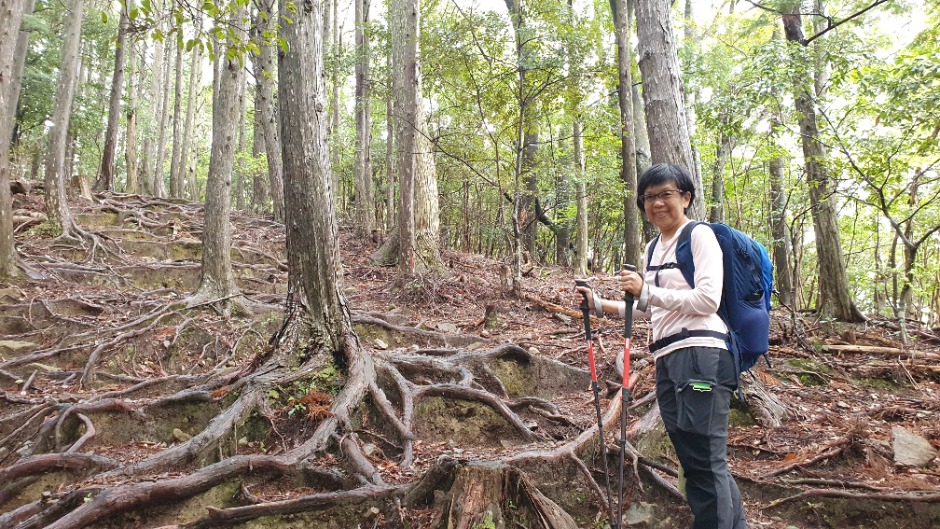
.jpg)